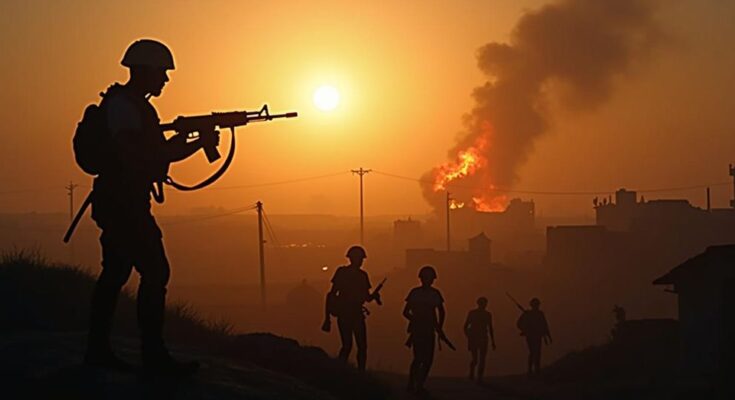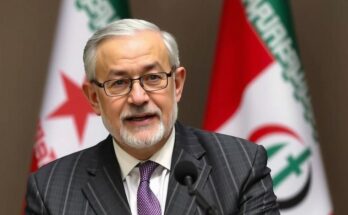The conflict between Israel and Hezbollah has escalated dramatically, with increased military bombardments leading to widespread protests worldwide. Thousands are fleeing violence in Lebanon as global demonstrations demand an end to the bloodshed, especially in light of the upcoming anniversary of the war in Gaza.
As the conflict between Israel and Hezbollah intensifies, significant explosions have rocked Beirut’s southern suburbs as Israel escalates its bombardment across Lebanon. This aggressive military action also marks the first attack on a Palestinian refugee camp in northern Lebanon. In a show of solidarity for the Palestinian cause, approximately 40,000 demonstrators flocked to the streets of London, while similar rallies occurred around the globe in cities such as Paris, Rome, and New York, protesting U.S. support for Israel amid the ongoing violence. The ramifications of these military operations are dire, as thousands of individuals, many being Palestinian refugees, are fleeing the affected areas. Israeli military operations have pressed residents in predominantly Shiite districts of Dahiyeh to evacuate as bombings continue, igniting fears among civilians caught in the crossfire. In terms of military developments, Israel’s army stated that they intercepted missiles launched from Lebanon, confirming their engagement with Hezbollah and Hamas militants. Meanwhile, the Health Ministry in the Hamas-controlled Gaza Strip reports over 41,800 fatalities as a result of the ongoing conflict, drawing attention to the human toll of the war that has persisted for almost a year.
The ongoing conflict between Israel and Hezbollah has roots in a complex historical struggle characterized by territorial disputes and regional tensions stretching back decades. The recurring cycles of violence have drawn in various state and non-state actors, including Iran, which supports groups like Hamas and Hezbollah. As the conflict escalates, international reactions have surfaced, particularly in light of significant casualties in Gaza, prompting worldwide protests and urgent calls for ceasefires. The geopolitical implications of this conflict extend beyond the immediate regions, influencing global diplomatic relations and security frameworks.
In summary, the Israeli-Hezbollah conflict has intensified, marked by frequent military strikes and significant civilian suffering. As global protests against the violence signal widespread discontent, the situation remains precarious with continued calls for ceasefires and diplomatic intervention from other nations. The humanitarian crisis in Gaza and the influx of fleeing residents from Lebanon underline the urgent need for resolution and peace efforts in a region long affected by conflict.
Original Source: www.thehindu.com




